Mysticism based on the teachings of the Holy Prophet (SAW) is generally known as Sufism. The individuals are Sufis, who prefer an ascetic lifestyle. They seek independence and freedom from the influence of all worldly pleasures. Some are great musicians and qawwals. Aziz Mian Qawwal is one of the renowned Sufi musicians.
Related: Exploring the Significance of Dance in Sufism
Sufism – Introduction, Background, Concepts, Importance, and Facts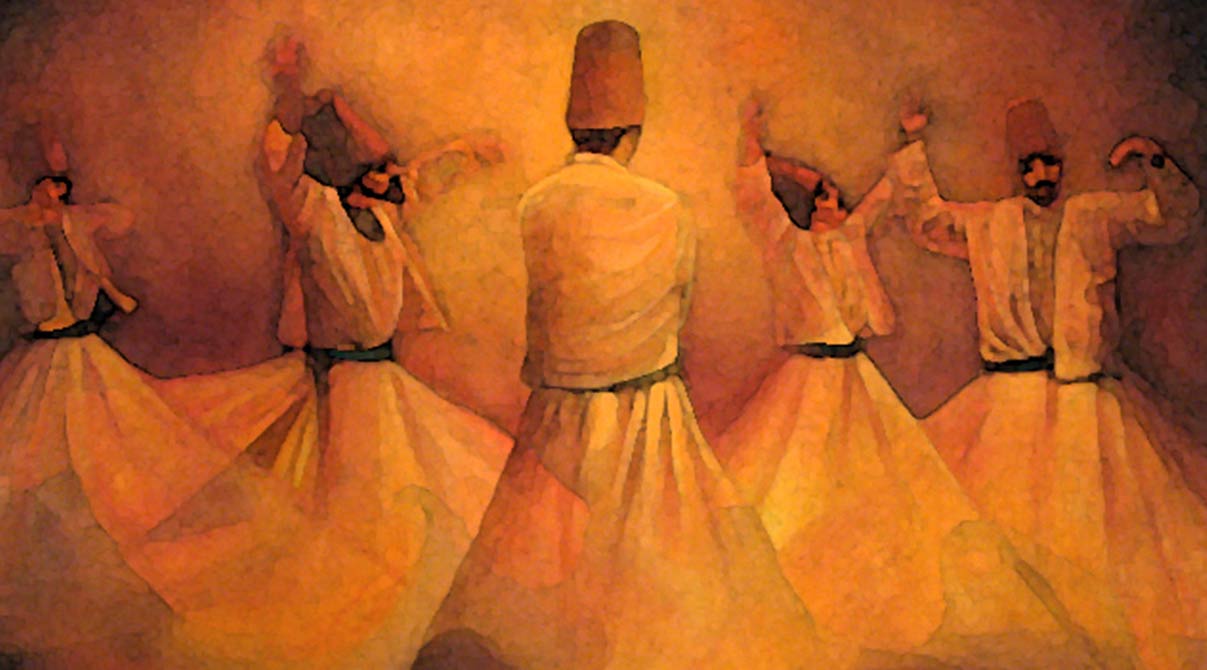
You would have heard the term Darvesh. This is also used to refer to all the Sufi saints who have disseminated the message of the actual purpose of life. The Sufi saints are against the accumulation of wealth. It leads to materialism and corruption. The life of a poor individual is so simple that it paves the way for getting connected with the Creator.
Origin of the Word Sufi
In case you are wondering about the origin and meaning of the word Sufi, these saints used to wear only a woolen sack as a cloth known as Suf. As a result, they got their name Sufi as the one who wears Suf. At that time, there was a trend of wearing silk clothes by most affluent individuals. Thus, Sufi signified freedom from the influence of all these worldly pleasures. Later on, the term expanded its affiliated meaning and interpretation.
Now, the word refers to someone who is pious, reverent, and wise to lead the rest of the people seeking material gains.
Teachings of Sufi Saints
The saints gained comprehensive knowledge of Islam and the teachings of Prophet Muhammad (SAW). They establish their Rabats and Khanqahs in Arabia and Persia. The teachings of these Sufis were so influential. They spread out to Mesopotamia, Egypt, Syria and Iraq, and the other Central Asian countries.
Belief System of Sufism
The fundamental doctrine of Sufism is attaining unity with the Creator. According to their beliefs and teaching, God is present inside us. But, our ego or Khudi acts as an impediment to getting one with our Lord. This Khudi directs a person to fulfill the worldly desires due to which one loses the communion with Lord. As a result, saints have practiced seclusion to stay away from the world so that nothing may meet their attention. Their prime motive with all such spiritual exercises was the elevation of their soul.
Stages in Sufism
Unlike death, a Sufi would be here but the soul becomes one with the Creator of all beings. The saints generally divide the elevation of the soul into four stages.
Shariat
The first stage involves the observation of Islamic teachings termed as Shariat. The next stage is known as Tariqat. It involves emancipation from worldly desires. It discards the general lifestyle adopted by people. The focus remains on observing worship.
Becoming One With Creator
The second stage starts to reveal the truth of this world that is actually a lie as the saint starts to become one with the Creator.
Marifat
The third stage transcends an individual soul to witness and understand the supernatural in the last stage known as Marifat.
Sufism grew and came under the influence of different civilizations. The merger with the Indo-Aryan culture led to the creation of a beautiful piece of literature. It was able to influence various forthcoming generations of teachings of Islamic mysticism. The teachings of Sufi saints may appear unique in their language and the use of poetry. Still, when you read their messages from a critical eye, you tend to realize a sense of spiritual guidance that is evident in their writings. Consistent studies of their literature enhance an individual’s belief toward life hereafter.
Read more: Remembering Allan Faqeer: A Sindhi Folk Dancer
Introduction to Sufi Music 
A sequential invocation of poetry or verses which are rhythmic and sung to achieve transcendence. This practice takes place for more than three thousand years. But, it got refined with the passage of time by either zikr or the practice of praising the creator by calling Him out with various names and attributes. Furthermore, religious excerpts are also made part of the invocation to achieve transcendence among qawaals and their listeners.
Read more: Top Cultural Dances in Pakistan That Tell a Story of Love and Celebration
Historical Background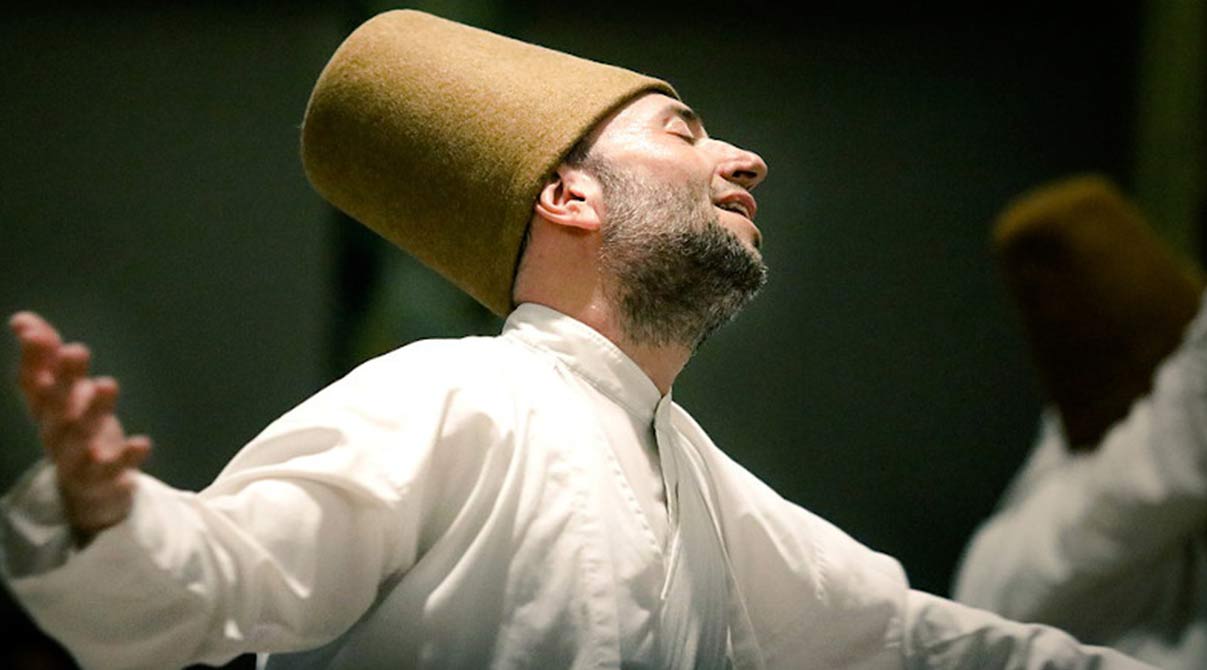
The art has undergone several transformations. One form qawaali that originated in South Asia is Samaa. It originated in Mayhana and from that point onwards, it gained attention across Asia in the tenth century. One of the fundamental traits of this form of qawaali is augmenting several forms of art. This includes praying, recitation, dancing, singing and the motive. Behind all these art forms is mysticism to connect with the Divine truth. Sufism is a spiritual Islamic concept and practice. Muslims attempt to learn the truth of infinite love and wisdom. They do it via direct and immediate encounters with God. Sufism had figured in the establishment of Muslim culture. This was through teaching the public and strengthening Believers’ religious interests.
Impact
Qawaali started to become voice of Islam as more and more. Mystics, philosophers, scholars, saints, clerics and ascetics started to move towards Asian peninsula. Polytheists started to embrace the religion. Earlier, they were never provided access to education and divine. The rhythms were appealing. It also carried a message from the divine. It created a direct link between the creator and its creations. The untouchable shudars and dalits were the most dominant castes. They found an access to connect with divinity. They did so by listening to qawaali and were in enough to embrace Islam.
Revival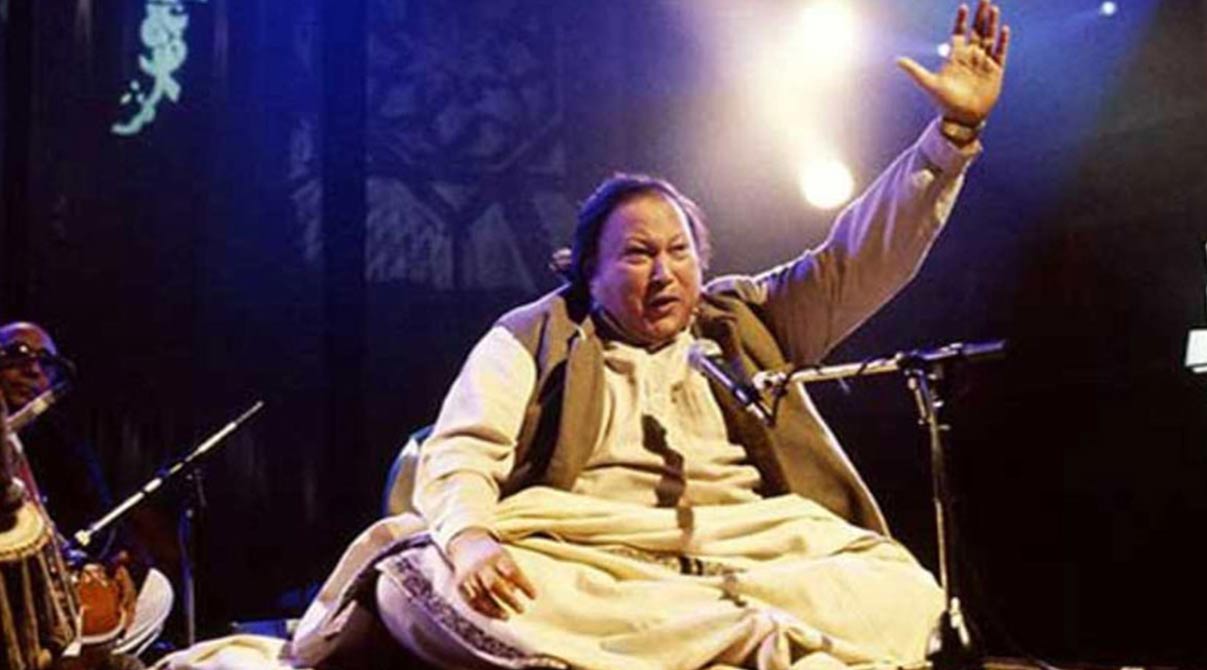
Qawaali in its most refined form was Hazrat Amir Khusrau. One historical narrative elaborates the worth of Qawaali introduced by Amir Khusrau. The Sultan of Deli, Alauddin Khilji was once presented with twenty eight thousand verses of Sanskrit by a pundit named Gopal. Sultan and his courtiers got perplexed at being unaware of the Sanskrit language. They took the aid of the renowned sufi saint of that time Hazrat Nizamudin Auliya. He appointed Amir Khusrai to come up with a comprehensive response to the verses presented by pandit Gopal. To his surprise, the rhythmic reply of Amir Khusrau was influential. And Pandit Gopal immediately got submissive and admitted his defeat before Amir Khusrau.
Read more: Farid Ayaz and Abu Muhammad: The Qawaal Bachay
A Biography of Aziz Mian Qawwal: The Legendary Qawwal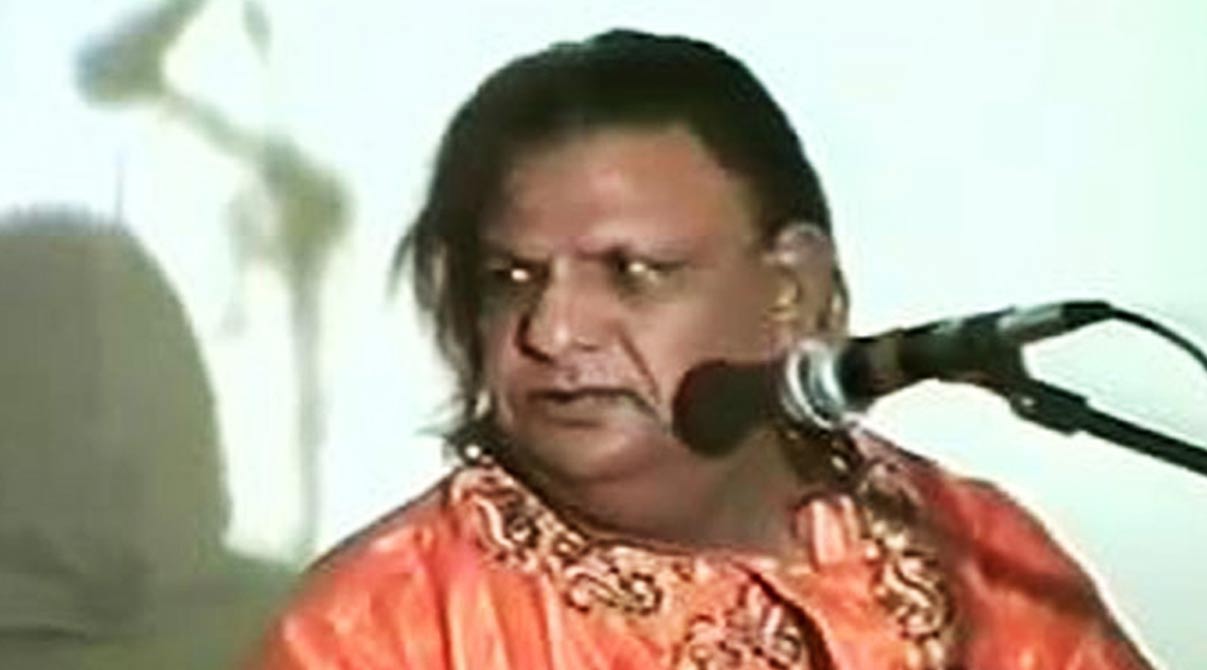
Let’s transcend from the physical world to the divine truth. Qawalli provides a medium to achieve spiritual satisfaction. That is the reason it is the path which leads to the heart. As you would have listened to the qawalli of legendary Nusrat Fateh Ali Khan, most of it based on the mystical poetry of sufism. The rhythmic melodies accompanied with handclaps develop the connection of an individual’s heart with the divine. You will find great names to mark the history of qawalli. such as Ghulam Farid Sabri, Amjad Sabri, Nusrate Fateh Ali Khan. Aziz Mian Qawwal is seldom remembered for his contribution to this distinct form of muslim music. Let us discuss his life, principles and style of Qawalli.
Early Life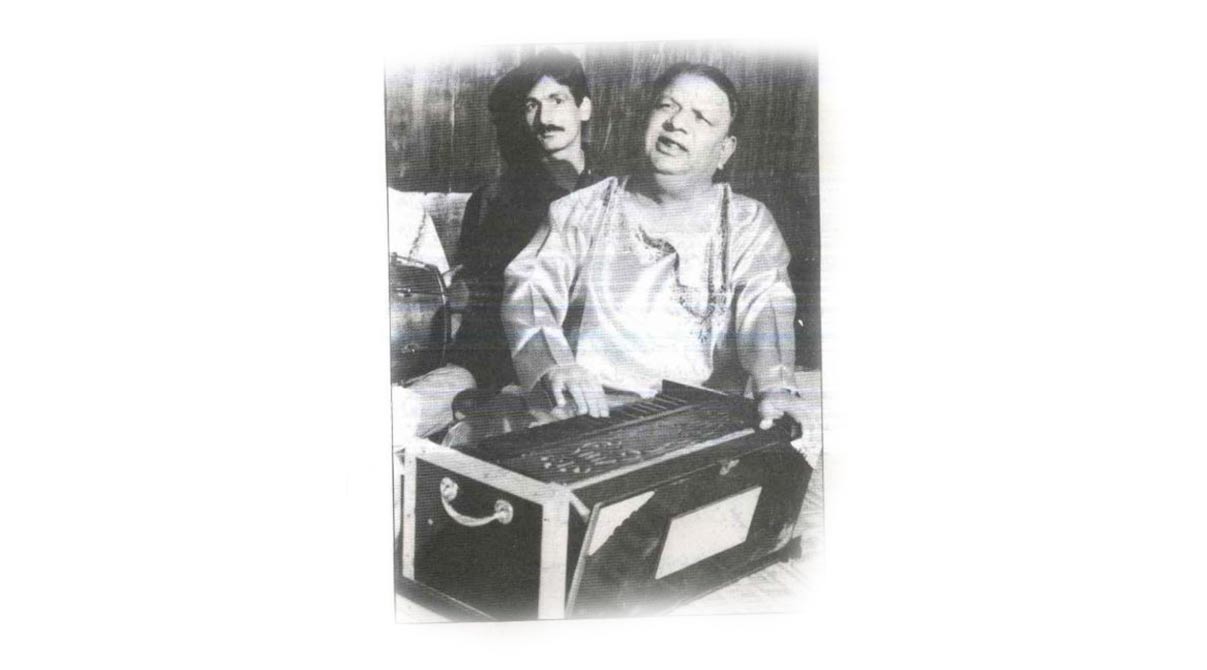
Aziz Mian Qawwal is also known by the name of Abdul Aziz. His date of birth is 17th of April, 1942. He was born in Delhi. He was named Mian because he used this word many times in his qawwali. Before starting his career, his original name was Aziz Mian Meeruthi. This last name came out of the word ‘Meerut’ which is the city from where the migrated to Pakistan, after the subcontinent partition. He lived in Lahore for the remaining years of his life. Aziz Mian was trained by Ustad ABdul Wahid Khan when he reached the age of 10. He also continued his education and specialized in Arabic language, Urdu Literature and Persian language.
Education
When he was 10 years old, Aziz Mian joined the Data Ganj Baksh School in Lahore and came under the supervision of Ustad Abdul Wahid Khan. This was the beginning of his formal training to master the right pitch, voice, tone and rhythms needed for qawwali. His training is one side of the coin. Aziz Mian showed his interest in literature and earned highest degrees. He got it in Persian, Arabic and Urdu Literature from the University of the Punjab during his stay in Lahore.
Journey towards Qawwali
He started performing at private events. His official start occurred in 1966, when he strated performingin front of Iran’s Shah, Reza Shah Pahlavi. The Shah of Iran was so touched by his performance that he awarded Aziz Mian a gold medal.
Mian got popularity and began releasing albums after this point. He was recognized as master of both qawwalis and ghazals. Because of his distinct and sharp voice, he rose to prominence in the qawwali community. At the outset, he was also named as Fauji Qawwal as he would sing qawwali in military barracks.
Aziz Mian’s Qawwali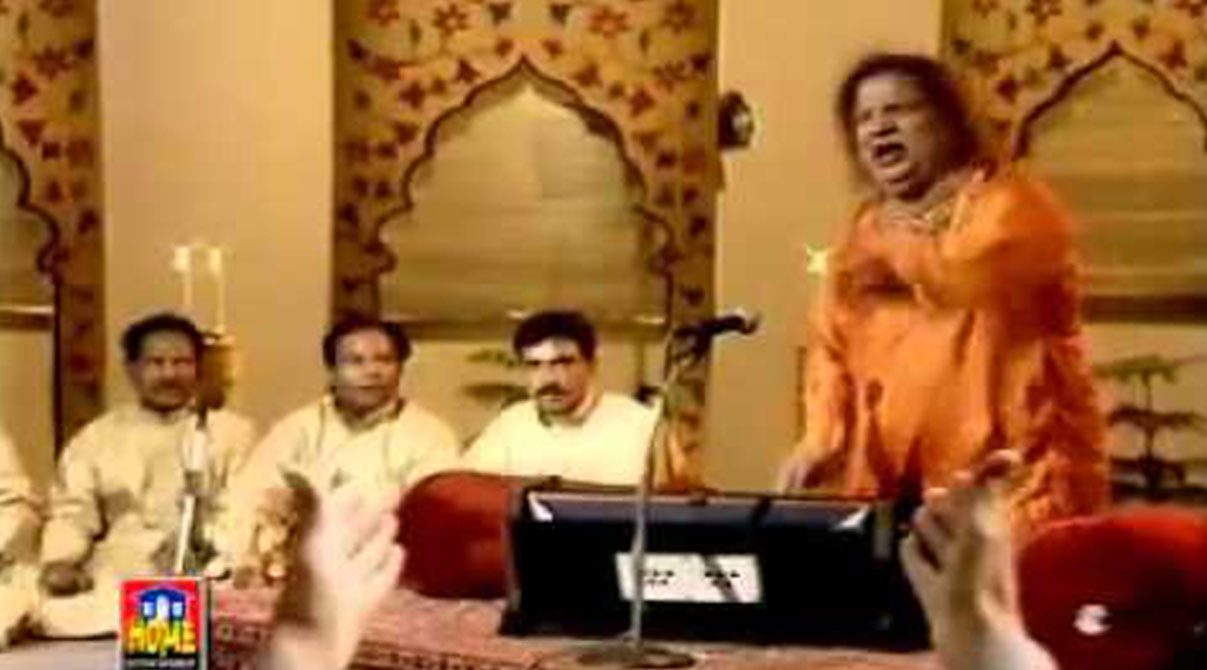
There was some special essence hidden within the qawwali style of Aziz Mian. Search it out on youtube and you will be mesmerized by any of his performances second to none. He was non-conformist qawwal because of his unconventional performing style. There are moments when he gets so profound into his lyrics. He sits on his knees and raises his hands as though he is communicating or seeking guidance from his Creator.
Aziz Mian is well known for crafting the qawwali lyrics on his own. He emphasized the miseries of humans and addressed the Divine for spiritual guidance. That is how he sets himself apart from the rest of the renowned qawwals who focus more on the entertainment side of this art.
Famous Qawwali of Aziz Mian
Many qawwalis can be here. One of his renowned qawwalis titled Mein Sharabi reflects his lamentation for the forbidden affection and addiction for alcohol titled Mein Sharabi. Once again, it connects with the theme of human miseries evidence in his lyrics. Another masterpiece by Aziz Mian involves him romanticizing and visualizing his beloved and the pain he feels for the unfulfilled destiny. One released qawwali titled Hashr Ke Roz Yeh Poochunga is the longest qawwali lasting for almost 155 minutes. Thus, every work is a unique piece of art which is laudable and make him stand conspicuous compared to other qawwals of this time.
In his qawwalis, he was enthusiastic of debating theological and Sufi contradictions. He greeted Allah and bemoaned man’s misfortune. He read literature of Allama Iqbal and many Urdu poets.
The Tragic End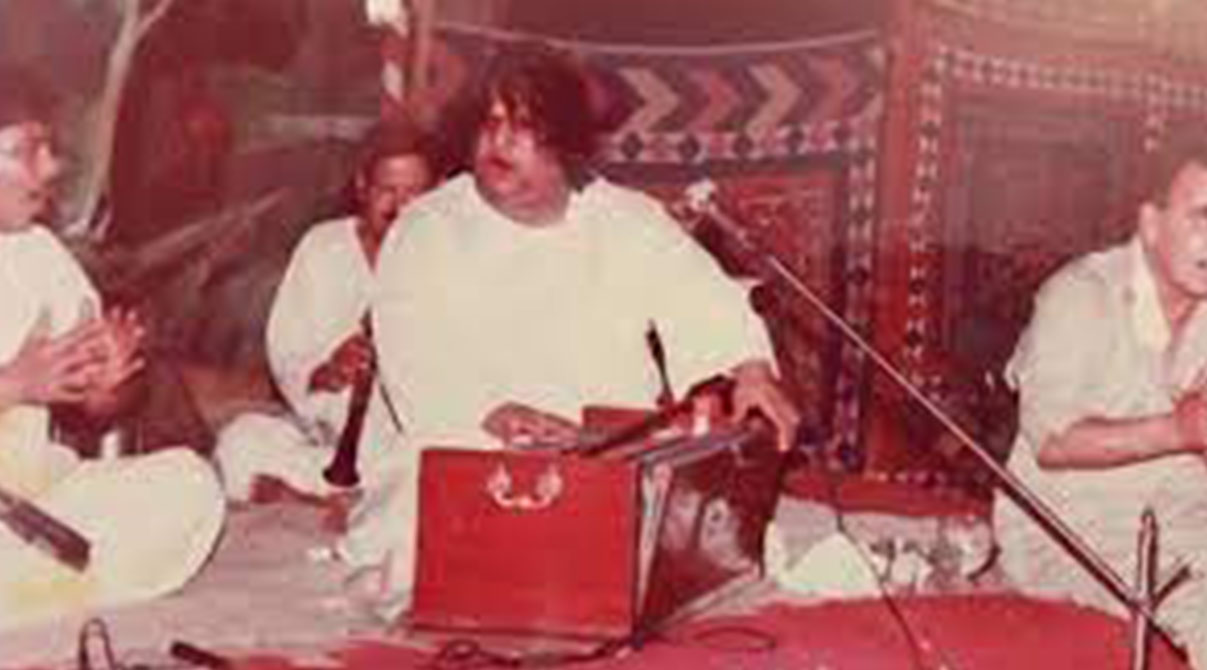
A time comes when every legend has to bid farewell and breathe his last. Aziz Mian got infected with Hepatitis and passed away on December 6, 2000 while he was preparing for his performance in Iran. He got buried in Multan and his legacy is being continued by his eight sons. Among all eight, Tabrez is closest in his vocal delivery and style matching the skills of his late father.
Aziz Mian’s son, named as Shibli Aziz, highlights the great contribution his father made in the field of qawwali.
Recognition & Awards
The government of Pakistan awarded Aziz Mian with the Pride of Performance Award in 1989. This award was given to applaud his great contribution to the field of music. Aziz Mian was a devoted Sufi, poet, writer, and scholar. His work will speak for him for generations to come!